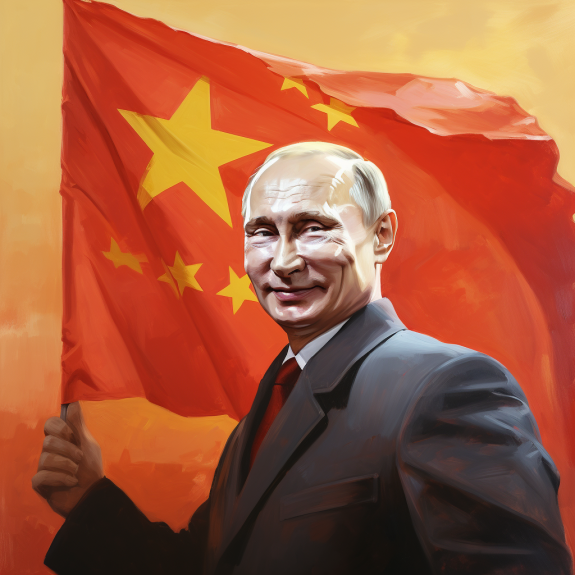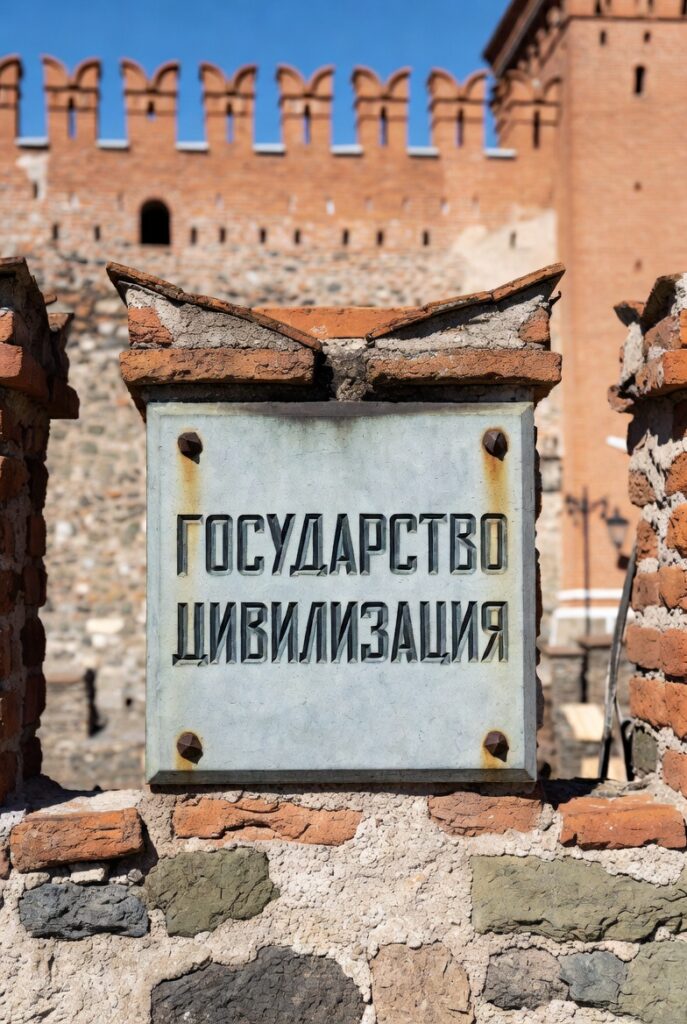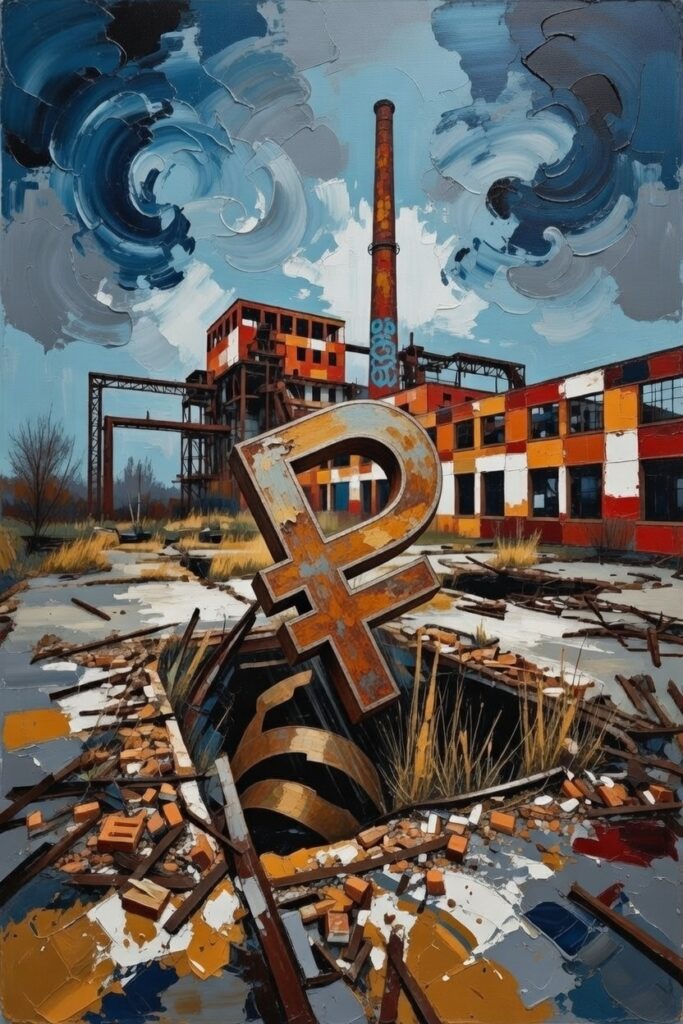The Russian president made one of his first major international trips in recent months, attending the Belt and Road Forum for International Cooperation in China. After the last year’s International Criminal Court ruling, Vladimir Putin can no longer visit countries that had signed the Rome Statute as he can be immediately arrested there. Thus, for example, he chose not to go to the BRICS summit in South Africa. He also skipped the G20 summit in India. It is likely that this was requested by the leaders of certain states that do not want to lose their relationship with Russia, but also do not want to rub the western countries the wrong way. Turkey’s President Recep Erdogan tried to invite Putin to visit Turkey, but the Kremlin apparently weighed up the risks of such a visit and turned it down.
Putin got trapped inside Russia and the CIS, a serious blow to his new ‘anti-colonial’ image as the leader of the oppressed peoples of the global South and East. The China summit became a one-man show for the Russian president. He spoke to Xi Jinping and other leaders. The latter were extremely polite, spoke of their love for Russia, and some even recalled how they had studied in the USSR and spoke Russian with Putin. Vladimir Putin’s very facial expression reflected his satisfaction with what was happening — exactly what he had been trying to achieve since the beginning of the war. If in the first months of the war he would arrive to every meeting well in advance and wait for the CIS leaders (being fashionably late had been his signature style before), now he finally felt he was the centre of attention. The Russian president did not hide his smile and satisfaction, and his mood was conveyed by the Kremlin media. They reported that the leaders were «extending their hands» to Putin and emphasised that the Russian leader was «the first to enter the banquet» and the «main guest» at the summit. This coverage was largely designed for the one and only main viewer — Putin himself — and reflected his perception of what was happening.
During his press approach at the summit, he again spoke about Ukraine’s «agony» (although Ukraine is currently launching its counteroffensive) and the pointlessness of Western arms supplies to the Ukrainian armed forces. The Chinese summit clearly boosted the president’s self-confidence, although he has long felt like a defeater of Ukraine and talked about the huge losses of Ukrainian army. Putin is also eager to become the main mediator of the escalating conflict in Israel, something he also openly hinted at while in China. The Russian president’s behaviour suggests that he feels that he is the leader of the «multipolar world» or at least of the «colonial» part of it. At the same time, it is quite clear that the main player at this summit was its organiser, China. Of course, the leaders of the Asian states benefit from Russia’s assistance, and the Kremlin does not skimp on it. It is not that difficult to talk politely to Putin and even remember a couple of phrases in Russian, all for the sake of securing Russia’s assistance. Asian politicians have mastered the techniques of buttering up the Russian president, long used by his Russian entourage. The entourage creates scenery, smokescreens and illusions — of imminent victory and popular support — and Vladimir Putin likes the scenery. The behaviour of the leaders of Asian states is also an illusion, a balm on the «anti-colonial» aspirations of Russia’s leader. However, it is very likely that these countries will still take their lead from China and will not want to completely break off relations with the West. The above mentioned China is more than happy to buy cheap Russian gas and coal and sell its equipment to Russia at high prices, while trying to comply with the sanctions.
Vladimir Putin himself will remain in a state of strange euphoria, thanks to doping and manmade illusions, that will hardly allow him to conduct normal diplomatic relations even with the countries that are formally loyal to Russia. Before travelling to the Chinese summit, he spoke at the Valdai forum, where he behaved in a very vulgar manner in front of its participants (experts friendly to Russia): for example, he used semi-obsenities in his talks. Putin’s undiplomatic extravagancies are becoming more and more frequent, and it is likely that even loyal partners will be wary of inviting an erratic and doping-intoxicated Russian president to their events. Putin’s entourage will continue to launch endless festivals and forums that are designed to give the head of state the illusion of his own importance in the «new world order.» Immediately after Putin’s visit to China, the president travelled to Perm for the «Russia is a Sports Power» conference, where he signed a decree to hold the «World Friendship Games» in Russia in 2024. The event will give Vladimir Putin a new dose of doping, disconnecting him from reality even further.
Problems of governors
Russian regional leaders are increasingly facing opposition from local elites and influential players. This applies not only to governors who have been in office for a long time or who are weak enough to be on the lists of candidates to be voted out of office, but also to newly elected officials. For example, Samara Governor Dmitry Azarov, who officially won 83.8 per cent of the vote, faced opposition from the speaker of the regional parliament. The regional authorities wanted to appoint Alexander Zhiveikin, the convenient leader of the «United Russia» faction, as chairman of the provincial Duma, but the incumbent speaker, Gennady Kotelnikov, refused to resign. The former university rector cherishes his status and does not want to lose it at the whim of the regional head. Kotelnikov feels he has the power to sabotage this wish, and he succeeds. That very same Azarov is regularly attacked by Alexander Khinshtein, an MP representing the «United Russia» party, who portrays the governor as a politician unable to cope with a complex and challenging region. This week, Khinshtein drew attention to the inter-ethnic conflict in the region, insisting that Azarov was incapable of dealing with it. Khinshtein, a skilled media man (he used to work for the MK tabloid), released a recording in which the participants in this conflict verbally humiliate and insult the head of the region. As a result, Dmitry Azarov appeared to the federal public as a weak player, incapable of standing up to challenges.
The leadership of the Sverdlovsk region (Governor Yevgeny Kuivashev was elected last year) and the mayor’s office in Ekaterinburg failed at the first attempt to get Anna Gurarii, an associate professor at Ural University, elected as the chairwoman of the Ekaterinburg City Duma. Her candidacy did not satisfy some of the influential city and regional elites, even though the regional authorities and the city administration had sought approval of Gurarii’s candidacy long before the elections. As a result, working sessions of the Ekaterinburg City Duma were suspended, Gurarii was appointed only a month after her election, and the disgruntled influential groups made a public show of their willfulness. Natalia Komarova, the governor of the Khanty-Mansiysk Autonomous Okrug, has come under public attack. The local elites have been unhappy with her since her appointment in 2010: Komarova comes from the elite circles of another oil region, Yamalo-Nenets, and had no personal connections to the KMAO. The governor’s critics managed to leak her words that the authorities had not been preparing for the war against Ukraine and that the war itself was ‘unnecessary.’ After that, the federal tabloids launched an attack on the careless Komarova, hinting at her corruption.
In the run-up to the presidential elections, it has become clear that the situation in the regions is far from the unity and «cohesion» that Putin likes to talk about. Regional elites have become bolder and gradually begun to confront Kremlin appointees at the most inopportune moment: during the de facto presidential campaign. By fighting the governors, they draw attention to social problems and demonstrate that the vertical of power is not as monolithic as it seems. Influential groups in the regions want to solve their own problems, and Kremlin’s agenda of lionizing Putin’s record achievements is clearly of secondary importance to them.










